How to Use the Beers Criteria for Medication Reconciliation and Deprescribing in Hospice Care: 10 Case Studies
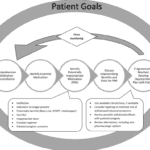
In this article, we will discuss how to use the Beers Criteria to identify PIMs and potential prescribing omissions (PPOs) in hospice patients. PPOs are medications that are indicated but not prescribed for a specific patient or population, or that are prescribed at a suboptimal dose or duration. We will also present 10 case studies to illustrate the medication reconciliation and deprescribing process and the outcomes of medication changes in different scenarios.
Understanding Parotid Gland Cancer: A Guide for Families
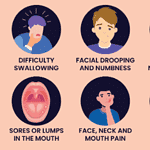
As a hospice registered nurse case manager, I understand that the journey through Parotid Gland Cancer can be challenging for both patients and their families. In this guide, I aim to provide clear and compassionate information to help you comprehend what to anticipate during the disease and how to offer the best possible care for your loved one. Remember, you are not undertaking this journey alone; I am here to offer unwavering support every step of the way.
How to Care for People with Dementia: The Importance of Patience, Compassion and Empathy

Caring for someone with dementia requires understanding and a heart full of compassion. This guide highlights the importance of patience and empathy and their profound impact on enhancing the lives of those with dementia.
Managing Shortness of Breath in Hospice Care: Non-Pharmacological Methods for Comfort

Discover effective non-pharmacological methods to manage shortness of breath in hospice care. Learn about positioning techniques, breathing exercises, and environmental adjustments that can comfort and relieve patients experiencing dyspnea, enhancing their quality of life during end-of-life care.
How to Support a Dementia Patient Who Tries to Escape from a Memory Care Facility

Elopement is when a person with dementia leaves a safe area, like their home or care facility, without supervision. This can be intentional or unintentional, and it's important to address to ensure the safety of the patient. If your loved one is attempting to escape from a memory care facility, there are steps you can take to support both them and the facility.
Understanding and Caring for Your Loved One with Liver Cancer
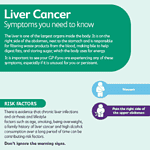
Liver cancer can significantly affect your loved one's health and well-being. As a hospice registered nurse case manager, I'm here to help you understand what to expect during this journey and how to provide the best care possible. Remember, I'm here to offer guidance and support every step of the way.
Coping with a Loved One’s Placement in a Nursing Home: Supporting Patients with Dementia

This article will try to help you cope with this challenge. We will give you some information and advice on how to:
Prepare for the transition to a nursing home
Support your loved one during and after the move
Take care of yourself and your family.
Understanding Respite Care for Your Terminally Ill Loved One
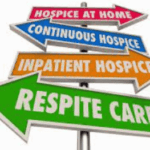
Caring for a terminally ill loved one is a challenging and emotional journey that requires strength, compassion, and support. As a hospice registered nurse case manager, I understand the importance of caring for patients, family members, and caregivers. In this article, we will explore the concept of respite care. This valuable resource offers rest and rejuvenation to caregivers while their loved ones receive specialized care in a skilled facility.
We will discuss respite care, its importance, Medicare coverage for respite care, the significance of skilled respite facilities, how often respite care can be provided, and tips for making respite care a positive experience for the caregiver and the loved one. Our goal is to empower patients, caregivers, and nurses by providing precise and concise information on this critical aspect of end-of-life care. Remember, you are not alone, and your love and dedication make a significant difference in the life of your terminally ill loved one.
Understanding Colorectal Cancer: A Guide for Families
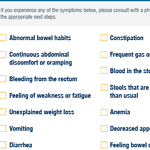
As a hospice registered nurse case manager, I understand the challenges that colorectal cancer can bring to your loved one's life. In this article, we will delve into the journey ahead, discussing the changes that may occur as the disease advances. We'll also address the shifts you might observe in your loved one's condition and provide guidance on delivering optimal care throughout this process.
Best Practices for Oral Care in Hospice Patients: A Guide for Families

Caring for a comatose loved one during their hospice journey requires special attention, particularly when it comes to oral care. In this guide, we'll explore best practices for oral care, considering the unique needs of comatose patients, and provide you with valuable resources for further guidance.
Managing Dysphagia for Comfort: A Guide for Families
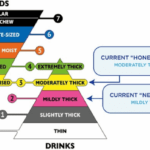
Caring for a loved one with dysphagia during their end-of-life journey can be challenging, but with the proper knowledge and support, you can provide them with comfort and dignity. Dysphagia, or difficulty swallowing, is a common symptom in terminally ill patients and can lead to complications if not managed properly. In this guide, we will provide you with essential information on managing dietary changes and what to expect and offer helpful tips and tricks to ensure your loved one's comfort.
Supporting a Loved One’s Decision to Stop Eating and Drinking Voluntarily
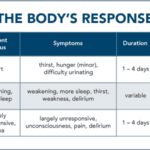
Explore how to support a loved one's decision to stop eating voluntarily and drinking (VSED) in hospice care. Learn about the ethical, emotional, and practical aspects of VSED, including its impact on patients and families, and how to provide compassionate care during this challenging end-of-life journey.
Best Practices for Managing Hallucinations
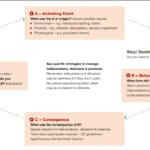
Learn effective strategies for managing hallucinations in terminally ill patients. This guide covers pharmacological and non-pharmacological methods to improve comfort and quality of life.
